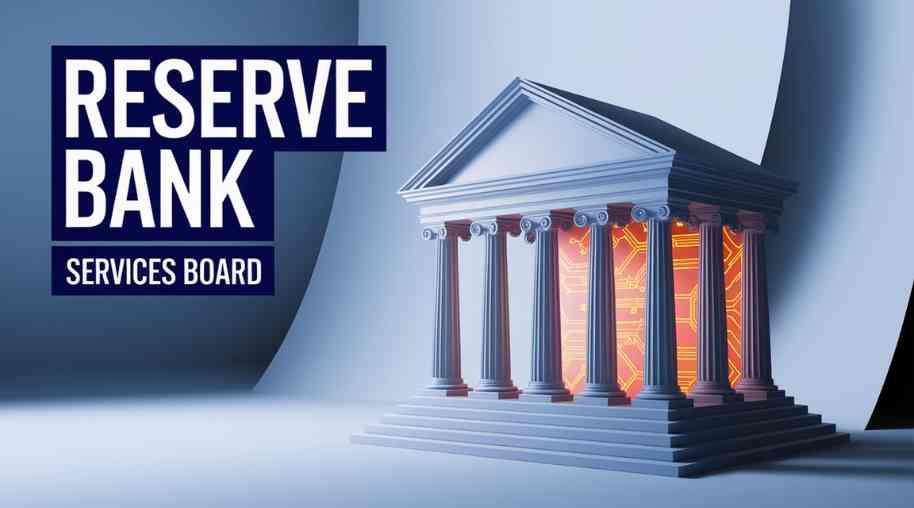RBSB Full Form-Reserve Bank Services Board
by Shashi Gaherwar
0 1012
Reserve Bank Services Board: Roles, Functions, and Importance
Introduction
The Reserve Bank Services Board (RBSB) plays a crucial role in the governance, policy formulation, and oversight of central banking operations. It acts as an advisory and regulatory body ensuring economic stability, financial supervision, and banking governance. The board helps implement financial regulations, safeguard monetary policies, and maintain the efficiency of banking institutions.

This article explores the functions, structure, significance, and impact of the Reserve Bank Services Board in ensuring a stable and efficient financial system.
What is the Reserve Bank Services Board?
The Reserve Bank Services Board is a regulatory authority that assists in the administration and governance of central banking functions. It ensures that banking operations align with national economic policies and financial regulations.
Key Responsibilities of the Reserve Bank Services Board
• Financial Supervision: Monitors financial institutions to ensure compliance with regulatory policies.
• Policy Implementation: Assists in enforcing monetary policies to control inflation and ensure economic growth.
• Banking Governance: Regulates banking activities to maintain transparency and accountability.
• Risk Management: Identifies and mitigates financial risks affecting the banking sector.
• Institutional Support: Provides guidelines for banking institutions to enhance financial stability.
Structure of the Reserve Bank Services Board
The board comprises financial experts, economists, and policymakers responsible for central banking decisions. The key members typically include:
• Chairperson: Oversees the board’s activities and ensures compliance with regulatory frameworks.
• Deputy Governors: Assist in implementing monetary and financial policies.
• Advisory Committee: Provides expert opinions on banking regulations and economic policies.
• Regulatory Officials: Enforce financial laws and banking guidelines.
Functions of the Reserve Bank Services Board
1. Monetary Policy Implementation
The board helps in formulating and implementing monetary policies that regulate money supply, interest rates, and inflation control.
2. Banking Sector Regulation
It supervises banking institutions to ensure they adhere to financial regulations, protecting consumer interests and economic stability.
3. Economic Growth and Stability
By maintaining inflation control and currency stability, the board ensures sustained economic growth and financial security.
4. Risk Assessment and Management
The board evaluates potential economic risks, such as financial crises or market fluctuations, and implements risk mitigation strategies.
5. Licensing and Oversight of Banks
It is responsible for issuing licenses to financial institutions, ensuring they meet regulatory standards before operating.
6. Consumer Protection
The board ensures fair banking practices and protects consumers from fraudulent financial activities.
Importance of the Reserve Bank Services Board
1. Enhancing Financial Stability
The board’s role in risk management and policy implementation ensures the stability of the financial sector.
2. Promoting Economic Growth
By regulating monetary policies and ensuring efficient banking operations, the board contributes to national economic development.
3. Strengthening Public Confidence in Banking
The board enforces transparency and accountability in financial institutions, increasing trust in banking systems.
4. Supporting Government Financial Policies
It aligns banking regulations with government financial policies, ensuring coherence in economic strategies.
Challenges Faced by the Reserve Bank Services Board
1. Market Volatility
Fluctuations in global and national markets pose challenges in policy implementation.
2. Regulatory Compliance Issues
Ensuring that financial institutions comply with evolving regulations is a continuous challenge.
3. Technological Advancements
The rise of digital banking and fintech requires constant adaptation in regulatory frameworks.
4. Inflation Control
Balancing inflation control while promoting economic growth remains a key challenge for the board.
The Reserve Bank Services Board is a fundamental component of financial governance, ensuring regulatory compliance, economic stability, and banking transparency. Its role in implementing monetary policies, supervising financial institutions, and mitigating financial risks makes it an indispensable body for national economic growth. Despite challenges like market fluctuations and technological changes, the board continues to adapt and strengthen the financial system for sustainable development.

Share:








Comments
Waiting for your comments